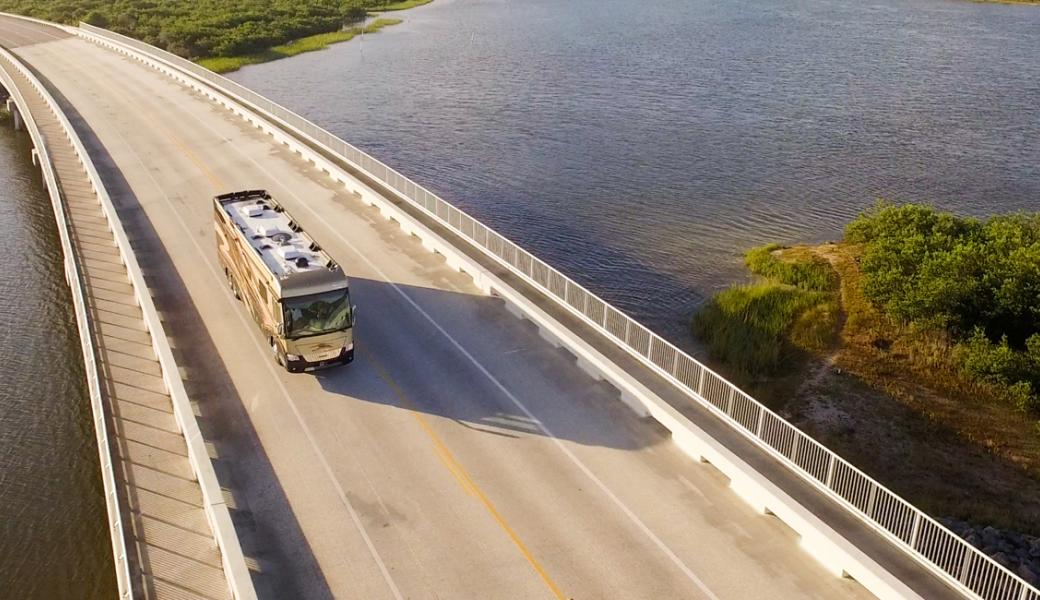CARB Your Enthusiasm: California Plans Reduce In-Use NOx Emissions In Heavy-Duty Engines

On February 11, 2019, the California Air Resources Board (CARB) held a public workshop to discuss strategies for reducing in-use emissions from heavy-duty (HD) vehicles. By 2031, CARB seeks to reduce nitrous oxide (NOx) emissions by 80 percent in California. Reducing HD vehicle in-use emissions is one prong of this plan and any future HD regulations will likely affect motorhomes, which use HD engines.
When certified, today’s HD engines are 98 percent cleaner than in the past, but CARB now wants to be certain they stay that way while in use. CARB has determined that new requirements are needed to ensure that HD vehicles operate as designed throughout their useful life—this is currently not the case, as it is not uncommon for vehicles to perform differently on the road than in a lab.
CARB wants to find a way to collect data to ensure that HD vehicles are continuing to meet emissions standards in the real world. Some of the ways CARB is examining to do this is by instituting more inspections in the field, by reading on-board diagnostic (OBD) systems and measuring emissions with remote sensing devices. OBD systems can be read in a variety of ways, including kiosks, station-based, dongles, telematics and mobile inspectors.
The new requirements, and therefore any associated costs, are currently unknown. Additional workshop and working group meetings will occur throughout 2019 with an official proposal expected next year. Also, worth noting, is that increased enforcement will likely result in more vehicles being flagged with problems, leading to more emissions recalls. This will tie into a separate rulemaking also taking place on enhanced warranties and useful life requirements.
Next steps include further workgroup meetings and workshops. Additionally, CARB staff plans to bring a HD Inspection/Maintenance (I/M) rule to the Board for adoption in the 2020+ timeframe, with implementation occurring shortly thereafter. For more information on the proceeding, click here. The RV Industry Association will continue to closely monitor these developments and inform members of any impacts that may target the RV industry.
For more information, contact Mike Ochs at mochs@rvia.org.
Please Sign in to View
Log in to view member-only content.
If you believe you are receiving this message in error contact us at memberservices@rvia.org.
